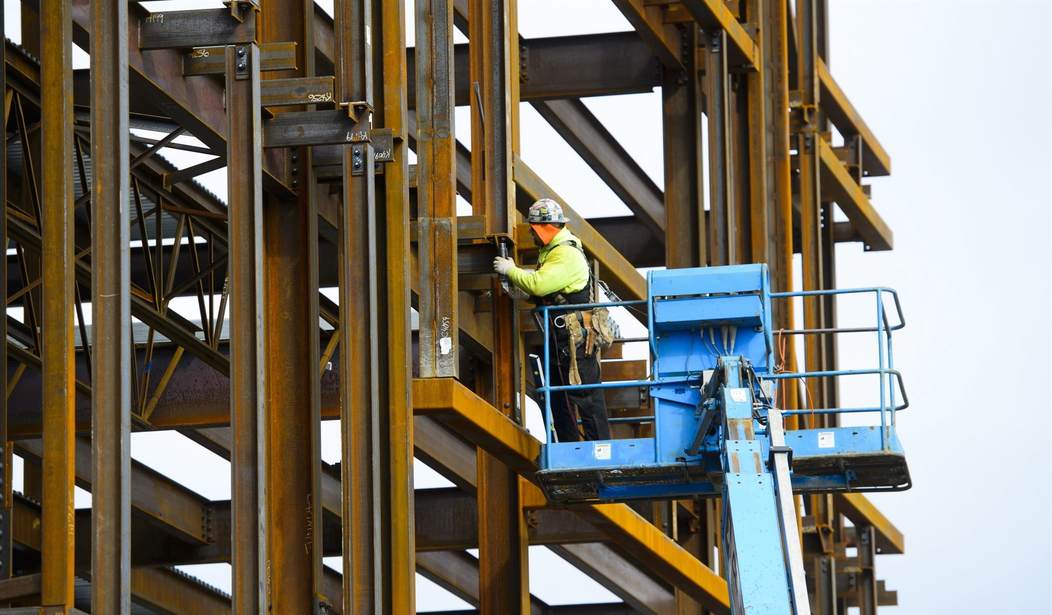WASHINGTON - Democrats, leftist labor unions, and liberal economists must have been cheering President Trump’s decision to slap hefty trade tariffs on imported steel and aluminum.
But America’s big business leaders, right wing groups, and even some of Trump’s top Cabinet officials and White House advisers opposed the move, saying it would hurt our economy and endanger U.S. national security.
Trump made tariffs on imported goods a centerpiece of his presidential campaign to appeal to rank and file labor union voters, but there is nothing conservative about trade protectionism or tariff taxes.
For most of the past century, Democrats have made higher tariffs levied on imported goods, one of their chief political planks at election time.
Republicans, on the other hand, have championed free market economics and free trade, policies that have united our global trading partners and global alliances.
Trump’s steel and aluminum tariff taxes won’t increase manufacturing jobs, they will reduce them. They won’t help American consumers, they will hurt them by raising prices on everything they buy, from cars, washing machines and countless other products.
Listen to what the conservative Club For Growth said this week when Trump made his announcement:
“The idea of imposing steel or aluminum tariffs of any kind is an affront to economic freedom. First and foremost, it’s bad for the American worker. For every steel worker job that might be saved because of a tariff, our country will lose even more American jobs in auto plants, construction, and so many other industries,” said Club for Growth President David McIntosh.
Recommended
“Tariffs will also harm the pro-growth effects of the tax cuts, stall the economy, incite a trade war, and help hand the [2018 midterm] election to the Democrats,” he said.
“We urge the Trump administration not to impose the tariffs that could threaten to undo the historical economic growth the tax cuts and the president’s deregulatory agenda have unleashed,” he added.
But before the president made his decision to impose his tariff taxes, which critics said would lead to a “trade war” with our two largest trading partners, Canada and Mexico, he had a trade war of his own going on in the White House with two chief Cabinet secretaries and his chief economic adviser.
Defense Secretary Jim Mattis and Secretary of State Rex Tillerson, the former CEO of Exxon-Mobil, who knows a thing or two about trade deals, were fiercely against the tariff plan. Both men sternly warned senior trade officials at a meeting last Tuesday that the tariffs “could endanger the U.S. national security relationship with allies, according to five people familiar with the meeting,” The Washington Post reported Wednesday.
Within hours of that meeting came the biggest blow of all to the administration’s protectionist schemes. Gary Cohn, Trump’s chief economic adviser and director of the White House’s National Economic Council, was resigning in protest.
His abrupt resignation followed departures by deputy national security adviser Dina Powell and Cohn’s deputy, Jeremy Katz, virtually cleansing the last of the White House’s free trade champions.
But by this time it had become apparent that Cohn, the former president of Goldman Sachs, and a favorite of the business community, had lost his influence with Trump. In the last week, the president has said he will approve tariffs on Canada, Germany, Mexico, Britain, Turkey, and South Korea, among other countries.
Many if not most free market conservatives were shocked and saddened by Cohn’s sudden departure.
“He was a voice of reason and sanity on economic policy, so I think a lot of people valued his presence and the grounding that he brought to the White House,” said Lanhee Chen, a policy fellow at the conservative Hoover Institution at Stanford University.
“I was wrong about Gary. He was very valuable to Trump. He was a steadying hand,” said longtime free market economist Steve Moore, who was an adviser in Trump’s campaign.
The president has crafted all of his arguments for tariffs in terms of saving or creating more jobs. But the history of trade protectionism is largely one of trade wars, retaliatory tariffs on U.S. exports and, eventually, lost jobs.
“Even if tariffs save every one of the 140,000 or so steel jobs in America, it puts at risk 5 million manufacturing and related jobs in industries that use steel,” writes Larry Kudlow, a veteran conservative economist, in his column on CNBC’s business network.
What Trump ignores in his misguided, steel tariff plan is that automation is the culprit. Steel production tasks that once took 10 hours in the 1980s, now takes only two, according to the American Iron and Steel Institute.
Trump’s tariffs will only weaken our trade posture and undermine our economy.
What we need now are expanding, multi-national trade policies, stronger economic growth, and robust capital investment, not an unending fixation on the trade deficit.

























Join the conversation as a VIP Member